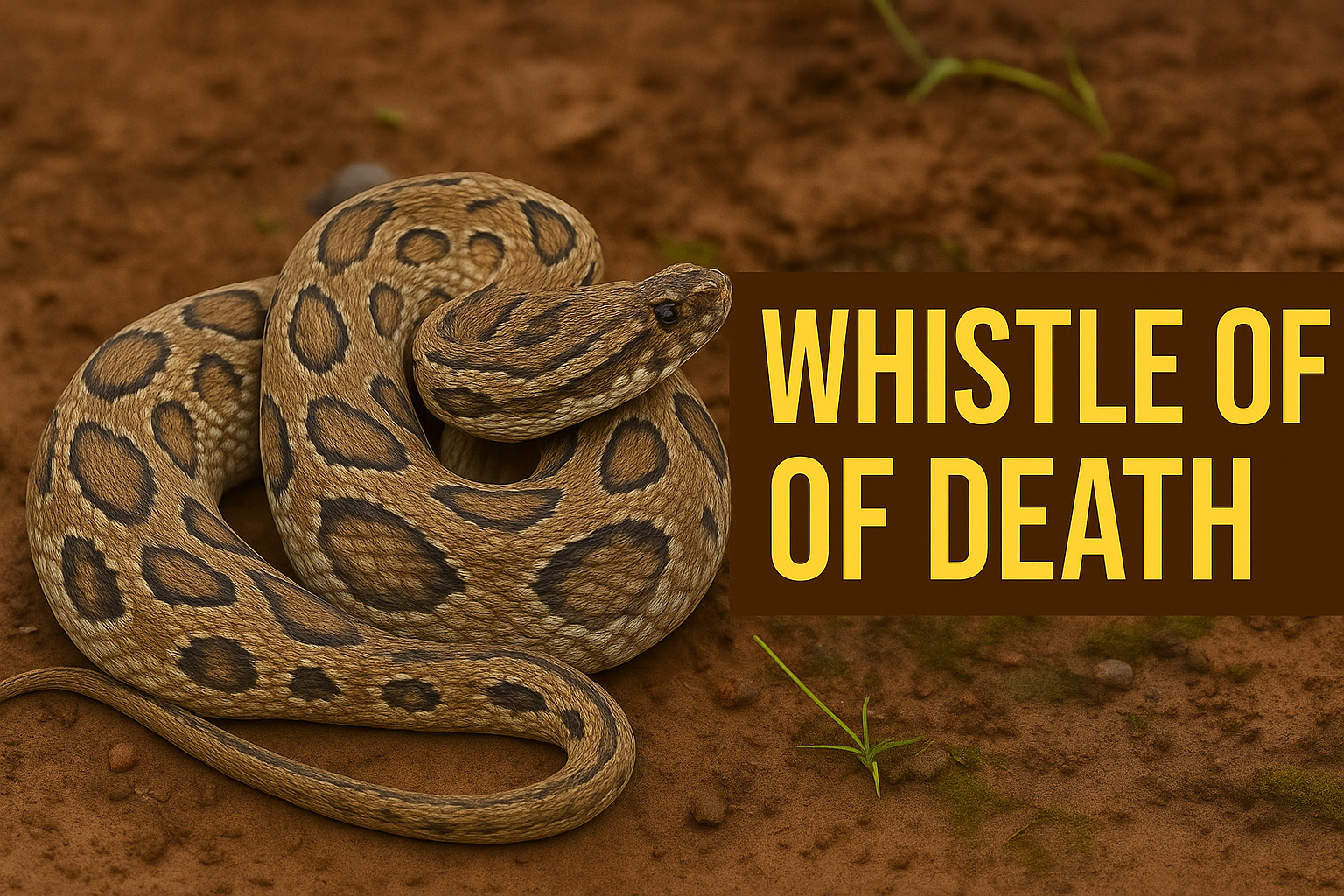Mumbai, August 8, 2025 — As monsoon rains sweep across India, experts are issuing urgent warnings about a deadly danger lurking in fields, farms, and even urban neighborhoods — the Russell’s Viper. Known for its terrifying “Whistle of Death” sound, this snake is among the most venomous in the country and is responsible for thousands of snakebite deaths every year.
Table of Contents
What is the “Whistle of Death”?
The Russell’s Viper produces a distinct hissing sound, often compared to a pressure cooker whistle. This is a warning signal when the snake feels threatened. If ignored, the reptile can strike in less than half a second — injecting venom that can cause:
- Severe internal bleeding
- Kidney failure
- Paralysis
- Death without prompt medical treatment
Where the Risk is Highest During Monsoon
- Rural Areas & Farmlands – Snakes seek shelter from floods and hunt rodents in crop fields.
- Urban Outskirts & Construction Sites – Debris and rodent presence attract them.
- Waterlogged Localities – Flooding drives snakes to higher ground, sometimes into homes.
How to Identify a Russell’s Viper
- Color & Pattern – Dark brown body with chain-like oval spots.
- Head Shape – Broad, triangular head.
- Behavior – Often coiled and ready to strike when threatened.
Safety Tips: What To Do If You Hear the Hiss
- Stop and Stay Still – Avoid sudden movements.
- Back Away Slowly – Maintain at least 6–8 feet distance.
- Do Not Try to Catch or Kill It – Call local wildlife rescue instead.
- Use a Flashlight at Night – Many encounters happen after dark.
What To Do in Case of a Snakebite
- Stay Calm – Rapid heartbeat spreads venom faster.
- Immobilize the Affected Limb – Keep it below heart level.
- Get to the Nearest Hospital Immediately – Russell’s Viper bites require specific antivenom.
- Avoid Home Remedies – Cutting the wound, sucking venom, or applying ice can make it worse.
Expert Advice
Dr. Ramesh Kulkarni, wildlife expert, says:
“Monsoon increases human-snake encounters dramatically. The Russell’s Viper is not aggressive by nature, but if provoked, it won’t hesitate to defend itself. Awareness and quick medical action are the best defenses.”
Bottom Line
The Russell’s Viper is a crucial part of India’s biodiversity, but it demands respect and caution. Recognizing the “Whistle of Death” could save your life this monsoon. Share this article with your friends, family, and community — awareness is the strongest antidote to fear.



